Join the VIP Teacher Club!
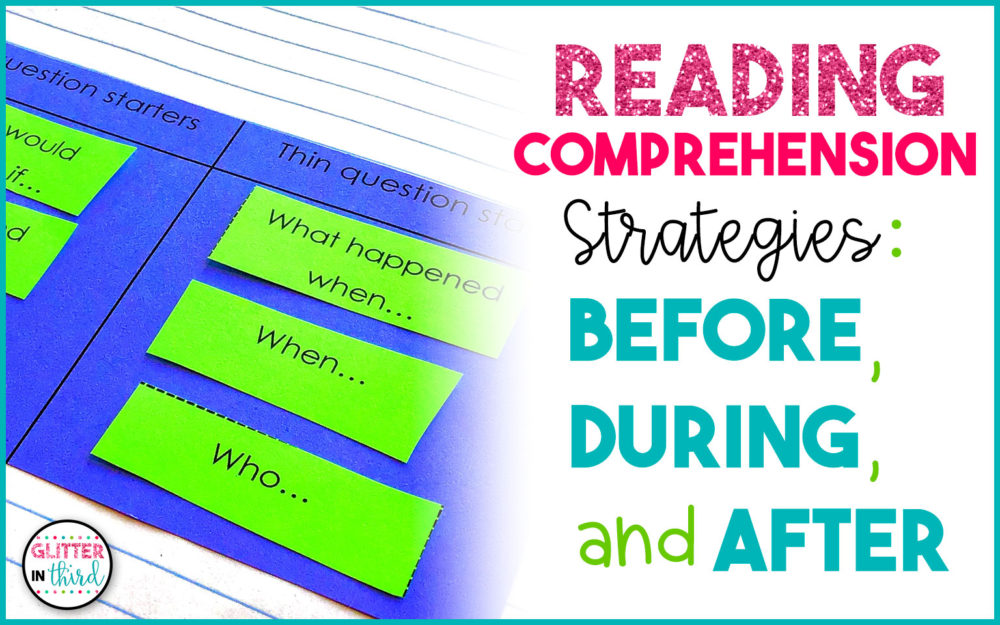
I have Elementary Reading Comprehension Strategies for you!
To help your students become the best readers they can be, it’s critical to not only teach reading comprehension strategies, but also teach your students why it’s important to use them before, during, and after reading!
There are multiple areas involved with reading comprehension.
With that, comes multiple strategies to help students build connections with literature and an understanding that will stick with them forever. 🙂
You know those stories that remain in your heart your entire life because you may have resonated with a particular event, setting, theme, or character while reading it?
Making those connections and building a vocabulary can’t just happen by itself.
By teaching reading comprehension strategies, your students will develop the skills needed to become critical thinkers, build social/emotional skills and vocabulary, and actually enjoy reading.
I mean, 99% of the time we enjoy doing the things we’re good at, right?
The same idea applies to reading!
But, learning the strategies also means learning when to apply them, and that’s what I want to share with you today!
I have 3 resource bundles that will help you teach reading comprehension strategies and when those resources can be applied before, during, and after reading!
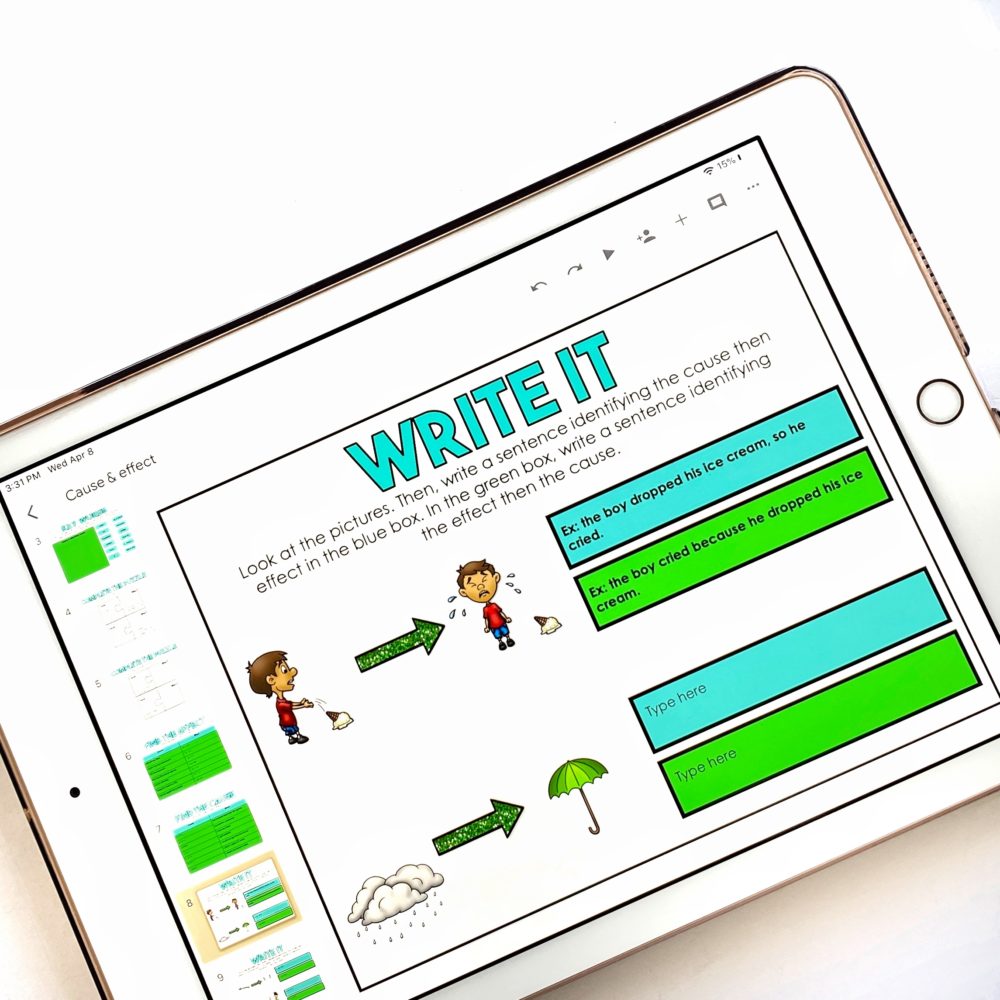
In this Google Classroom resource you’ll find 14 different resources that include:
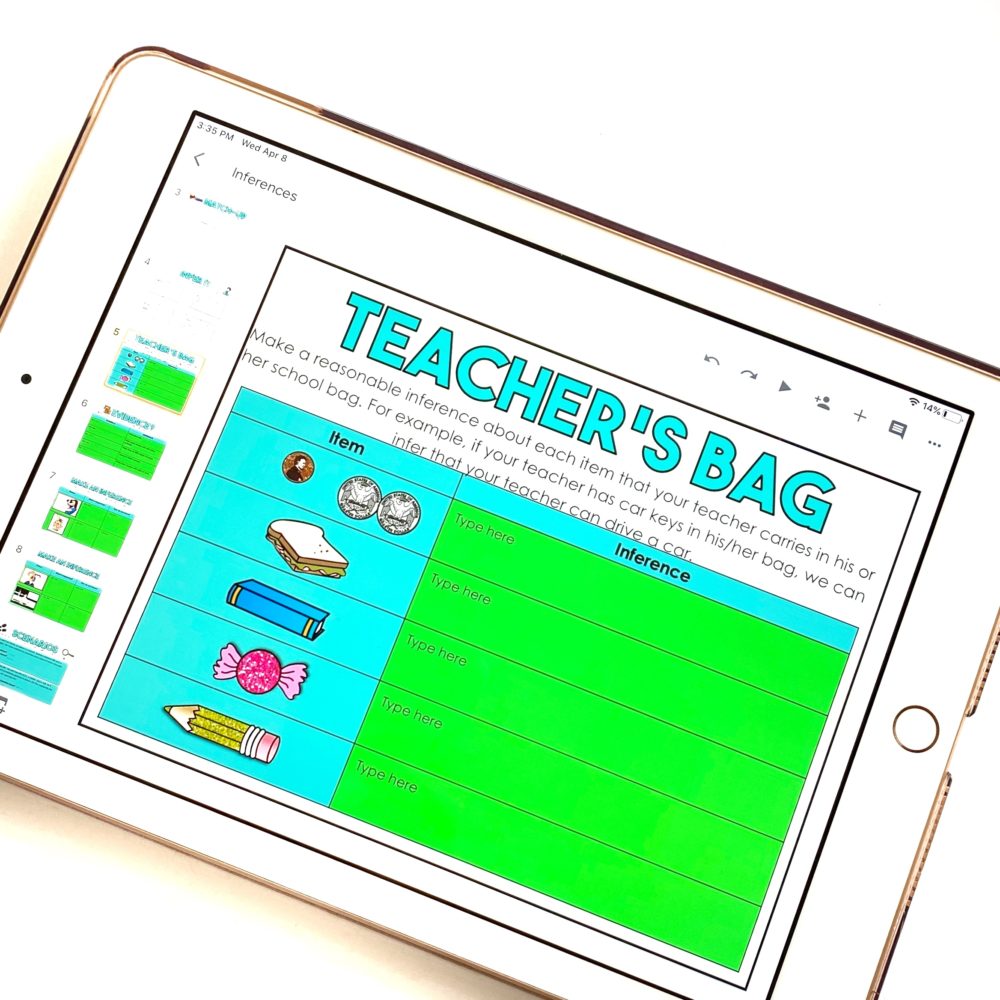
Each of the resources includes activities that utilize drag-and-drop and short answer questions, fill-in-the-blank, vocabulary matching, as well as graphic organizers to help students get their thoughts in front of them which allows you to have better discussions at every stage of reading!
You can preview each of the resources included in this bundle here!
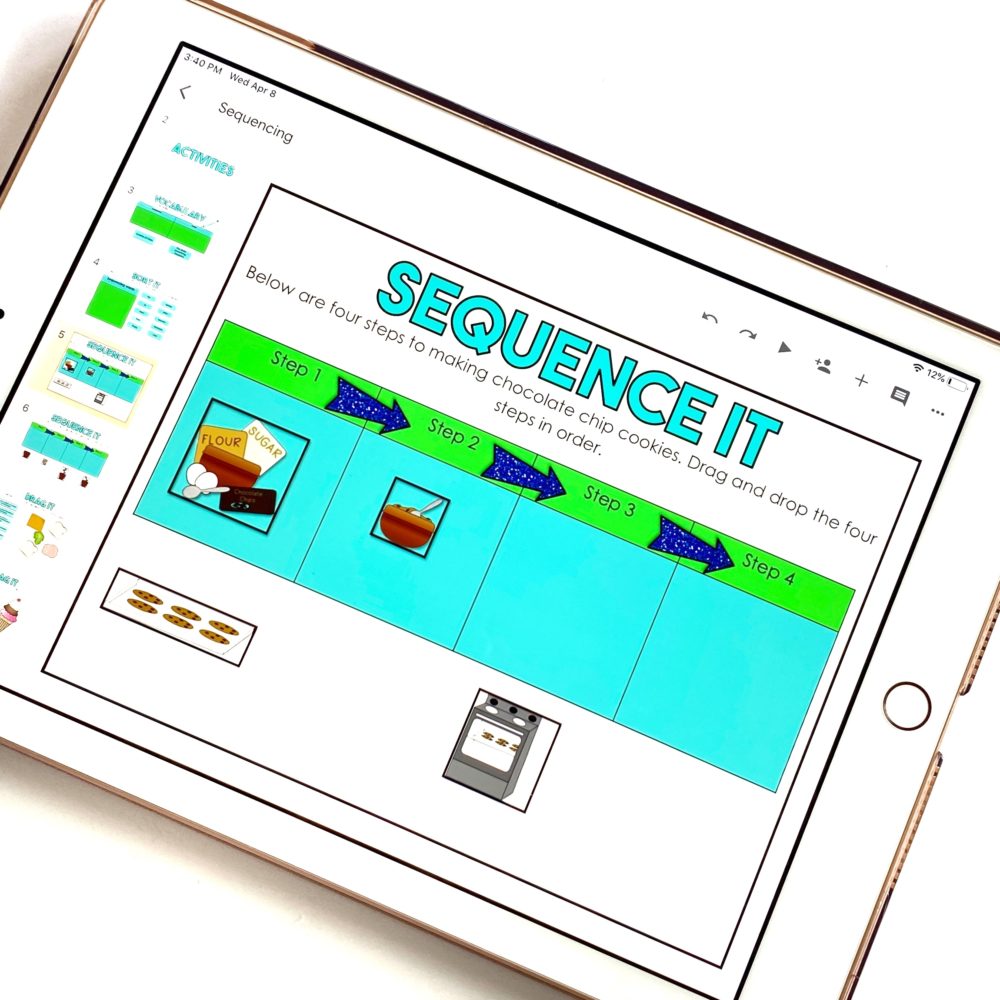
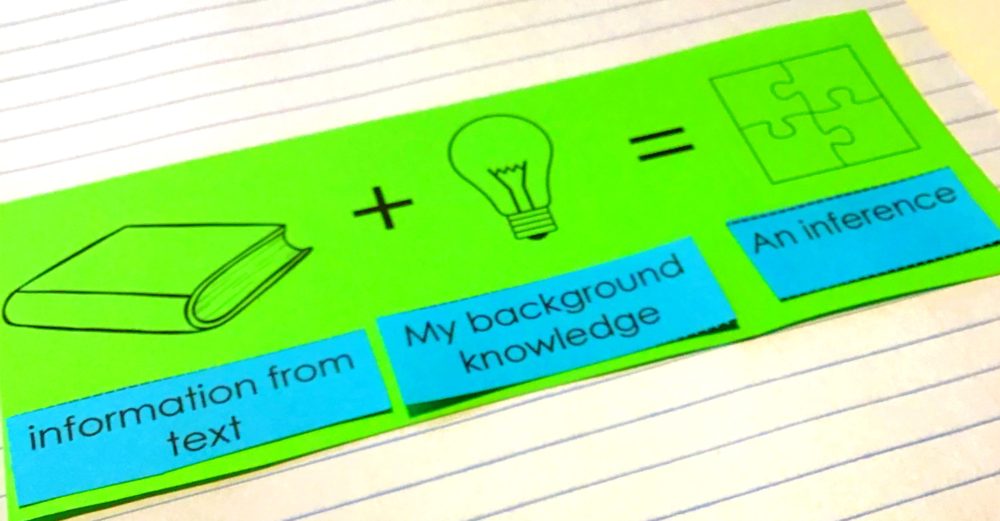
If paper is more your speed, this interactive notebook covers all of the same reading comprehension strategies as mentioned in the Google Classroom resource!
However, if you’re looking for extra activities and resources, this notebook includes all different questions and content than in the Google Classroom resource, so nothing will be repetitive to your students and they will benefit from the extra practice!
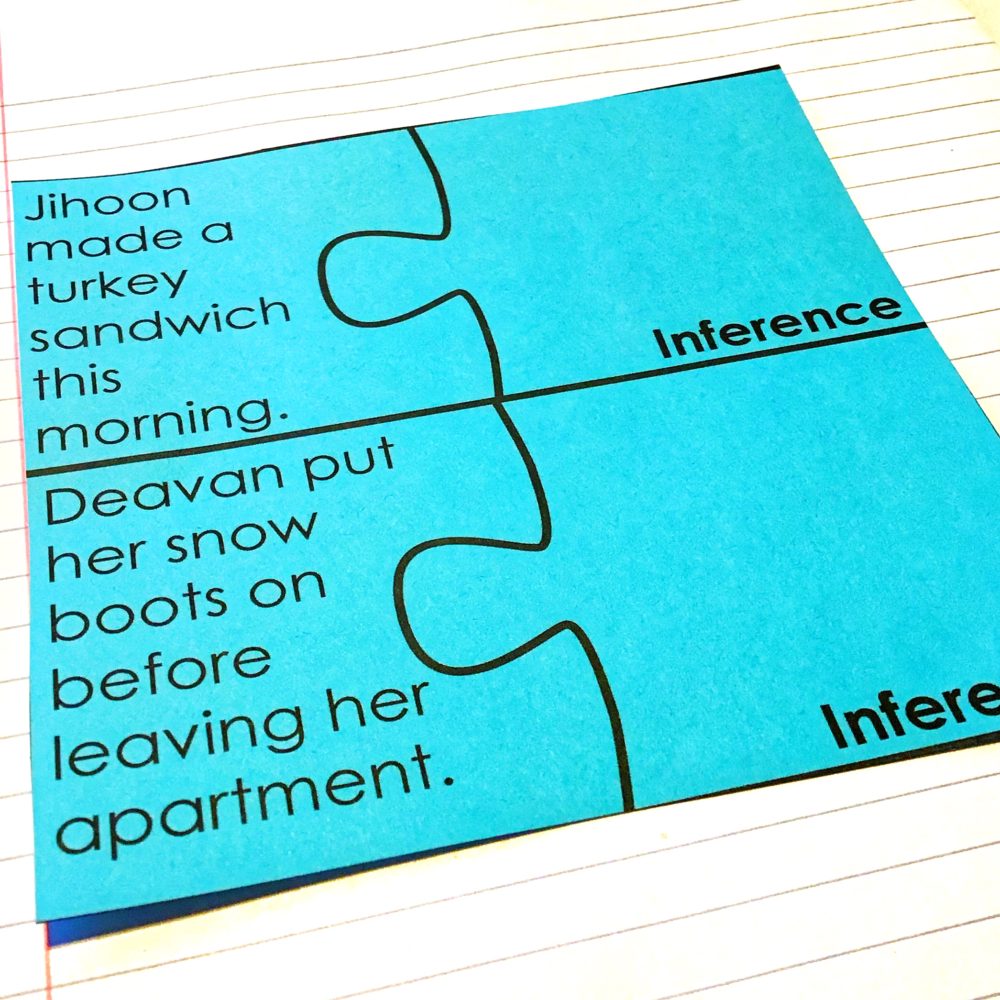
You can actually convert this resource to an interactive PDF (Easel Activity), so if you prefer to keep things digital, you still have that option!
There are 100+ activities in this bundle and has 3 differentiation levels to meet the needs of all your students.
There are directions on how to complete the notebook, as well as answer keys for your using.
No prep required, besides print and cut! 🙂
As always, you can find a preview of each of the resources here!
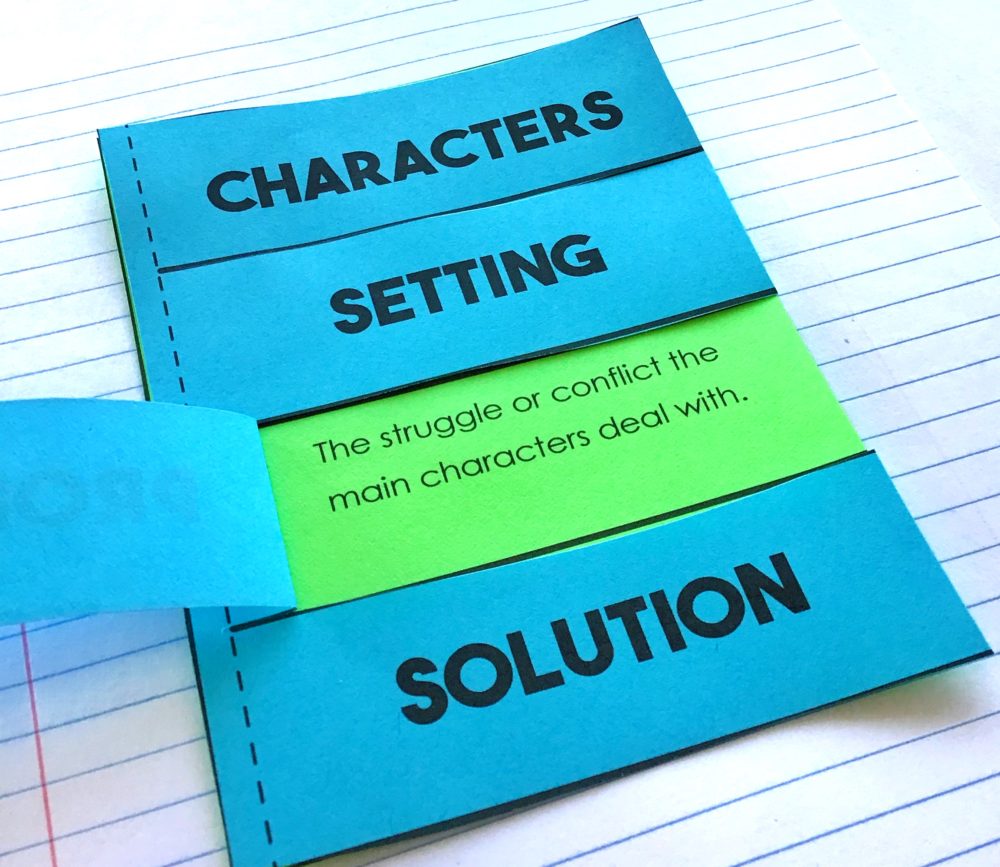
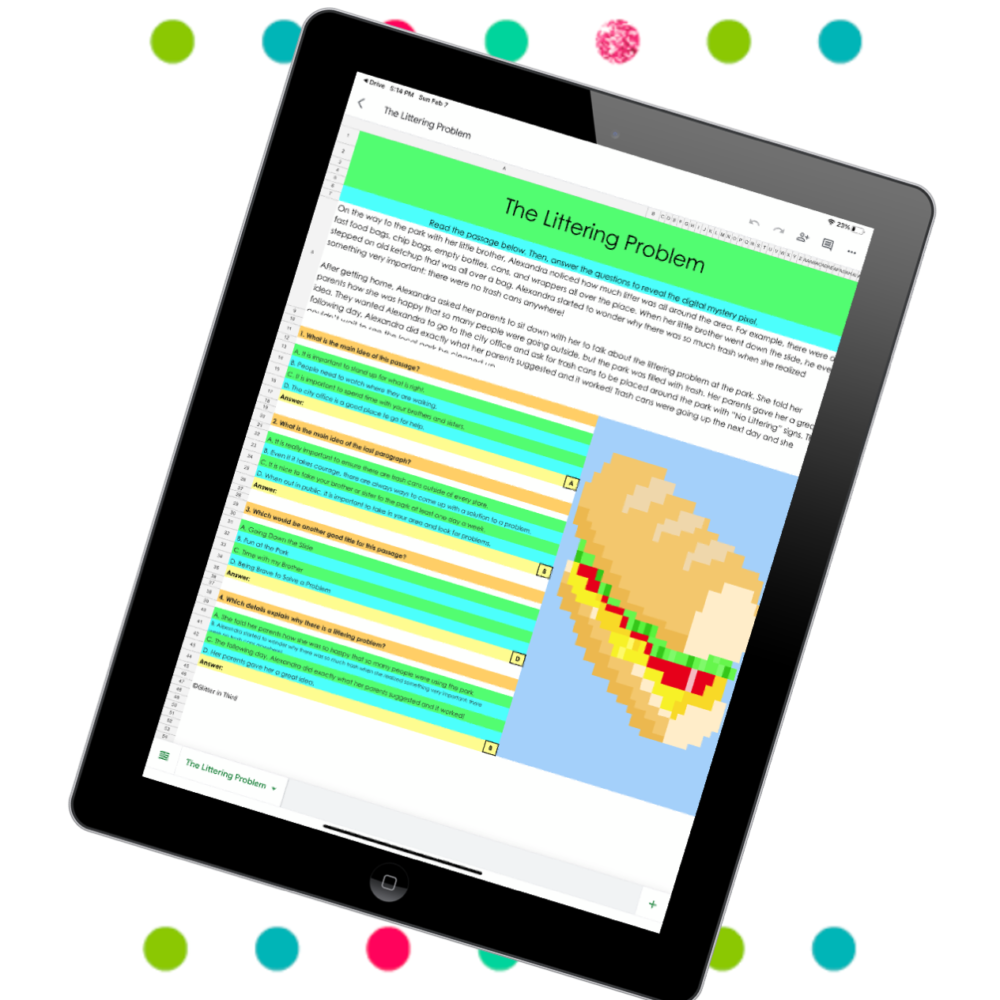
Lastly, and quite possibly my favorite ;), digital mystery pixels for all reading comprehension strategies!
This bundle actually includes a few different topics compared to the others such as figurative language, point of view, stories, dramas, and poems, context clues, and text evidence.
Each resource includes anywhere from 5-7 pixels, and 4 questions per pixel, giving you over 20+ questions for each comprehension strategy!
These pixels are so much fun to be used as review games, assessments, simple homework assignments, or even group work.
Kids have SO much fun with these and I love how versatile they are so you can plug them into your reading comprehension strategies unit wherever you need them most. 🙂
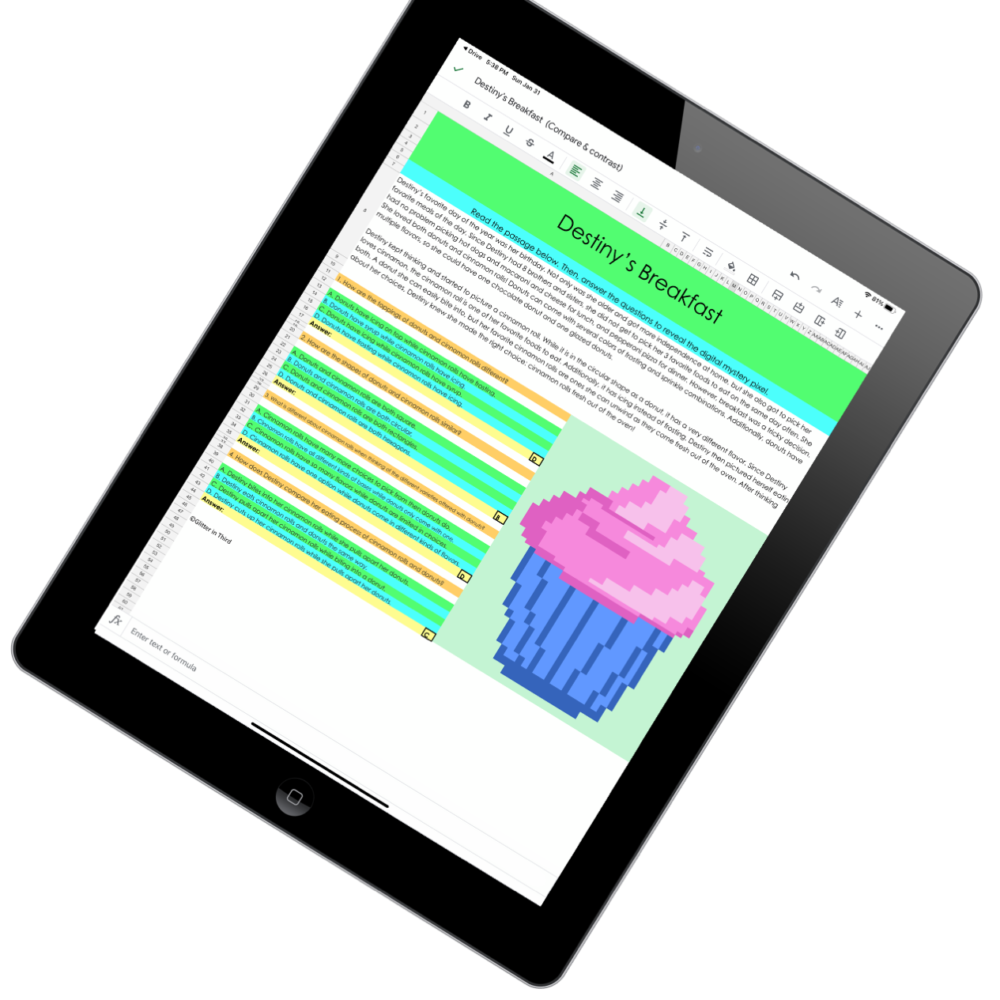
You’ll find pixel passages that include both fiction and nonfiction text.
Check out the different pixels by clicking here!
Not sure if a digital mystery pixel is for you? You can read my blog post all about them here.
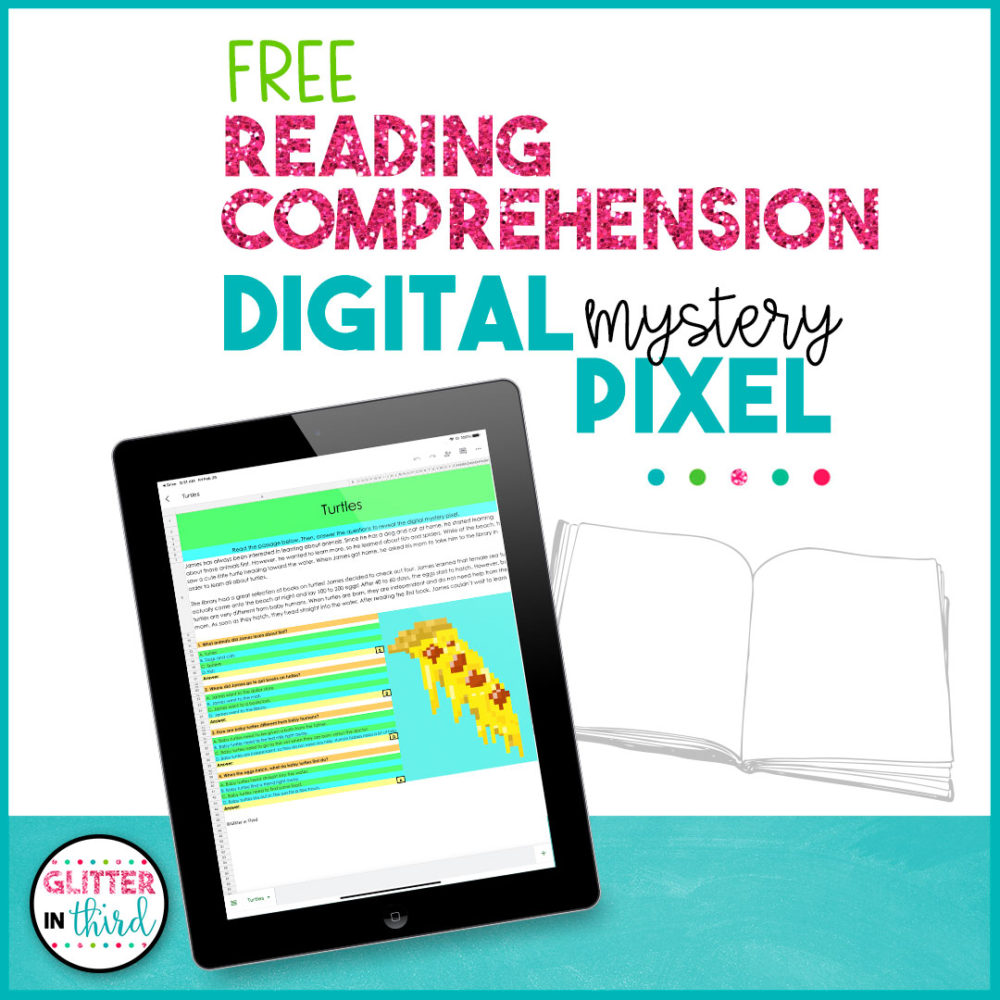
Make sure to sign up below to get a FREE reading comprehension digital mystery pixel sent right to your inbox!
Now is for the fun part – applying those resources and activities to your teaching and showing your students when it’s appropriate to use the strategies!
I especially recommend applying the Asking Questions activities to pre-reading time because it discusses the difference between thick and thin questions.
Prior to reading, students’ questions should usually be thinner because they haven’t gone in-depth with the story yet.
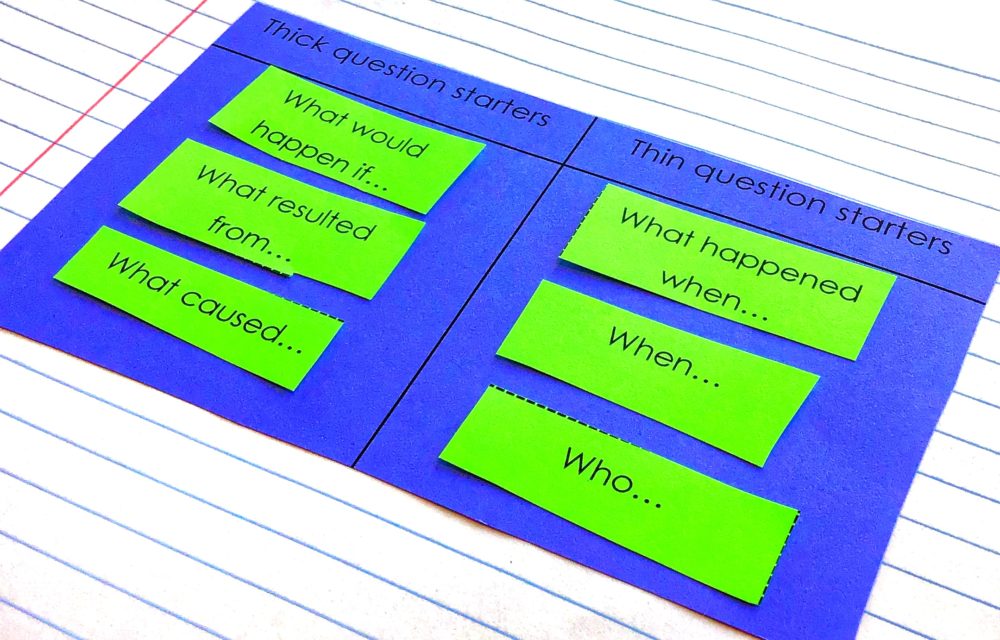
It’s important that your students know the difference between thick and thin so they know how to always look for a deeper meaning in the text after reading.
I also find the Making Predictions, Making Connections, Author’s Purpose, and Nonfiction Text Features resources super helpful for pre-reading discussions because when your students are given time to sift through the book to look for any text features, prefaces, or pictures, they’re usually able to determine the author’s purpose for writing, make predictions on what the story will be about, and think about the prior knowledge or experiences they already have with the topic.
Essentially, you should be working toward getting your students to be thinking, “What would be helpful to know before I read this book?” or “What do I already know that makes this story more relatable to me?”
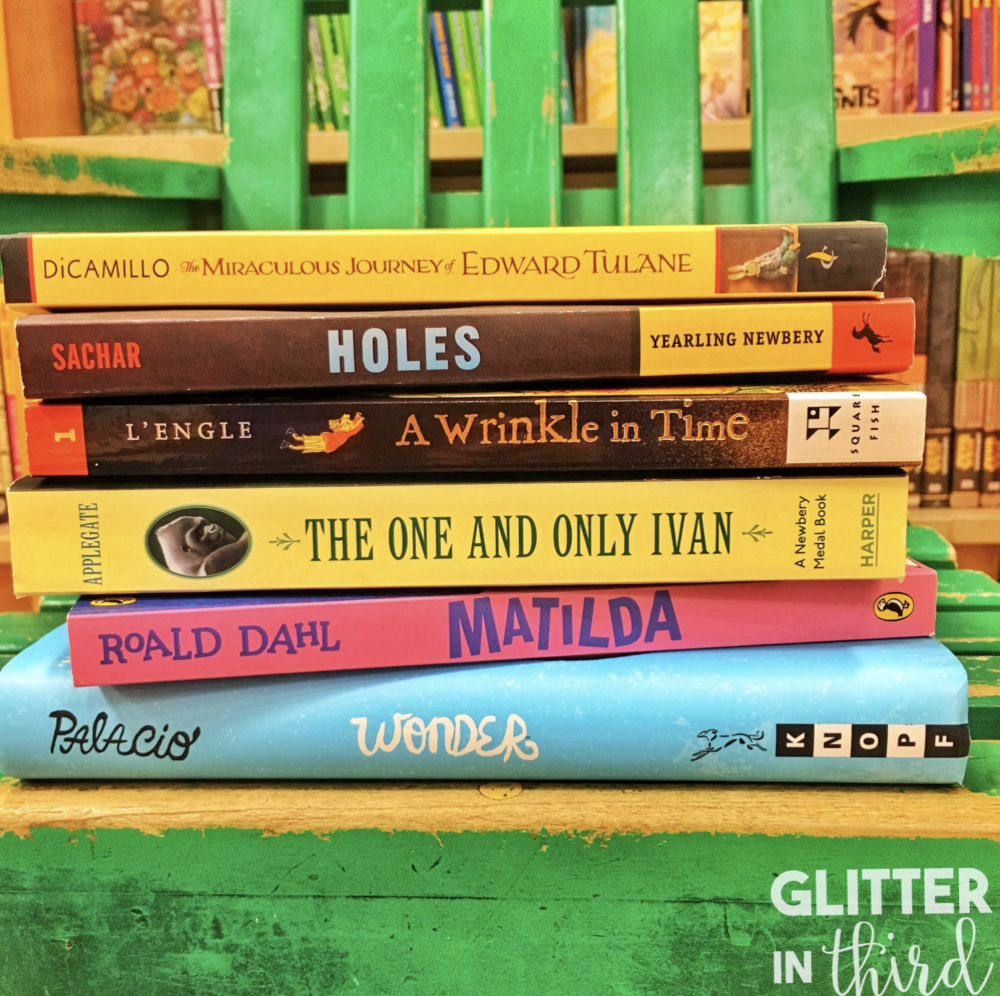
There are multiple reading strategies in this bundle that can be applied during reading!
For example, some areas of story elements can be established, inferences can be made, character traits are applied, and understanding the difference between facts and opinions is important while reading.
Of course it’s critical that your students have a solid understanding of these strategies before being expected to apply them while reading, but once they can connect them to different stages throughout the text, they’ll be able to understand the story on a much deeper level and make those connections I mentioned earlier that help them become critical thinkers and develop social/emotional skills.
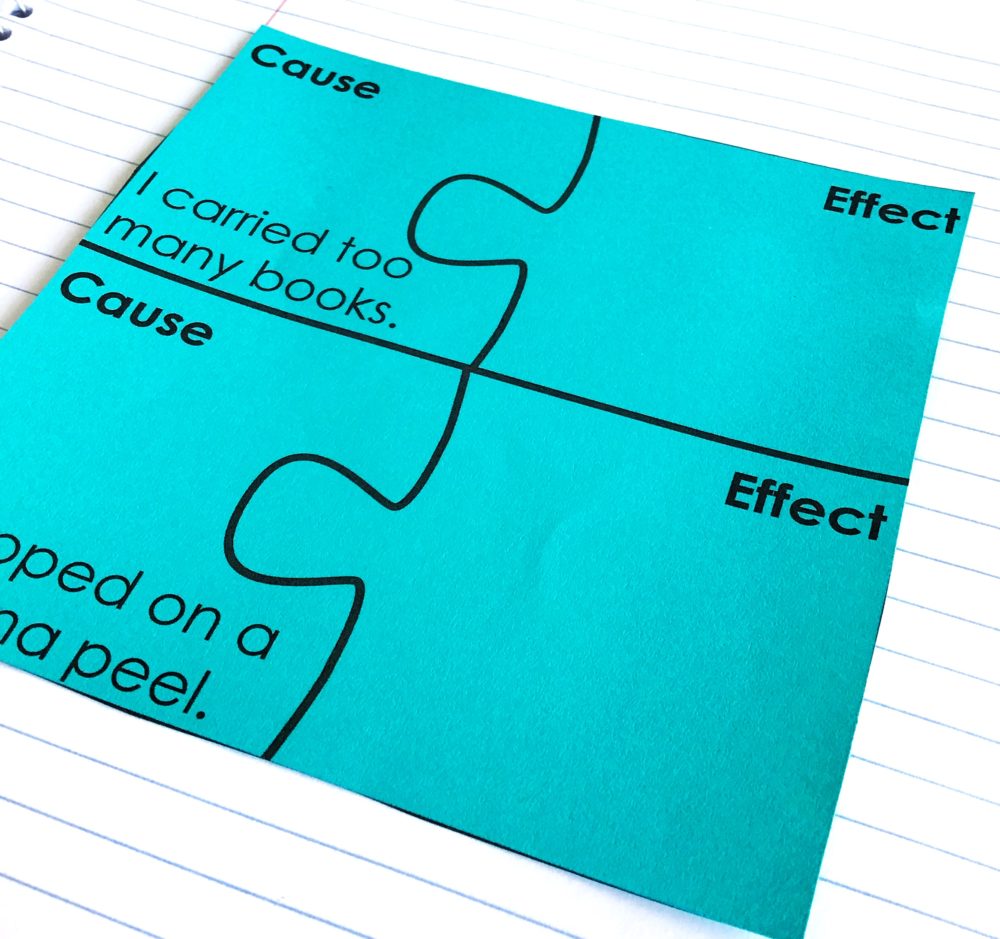
I would recommend having your students focus on strategies such as cause and effect, main idea, summarizing, sequencing, and establishing the rest of the story elements after reading.
There will always be moments that these strategies can be applied while reading, but for the most part they’ll be resolved at the end. 🙂
Some characters are also notorious for changing from beginning to end, so having your students know that those strategies still apply after reading is very important.
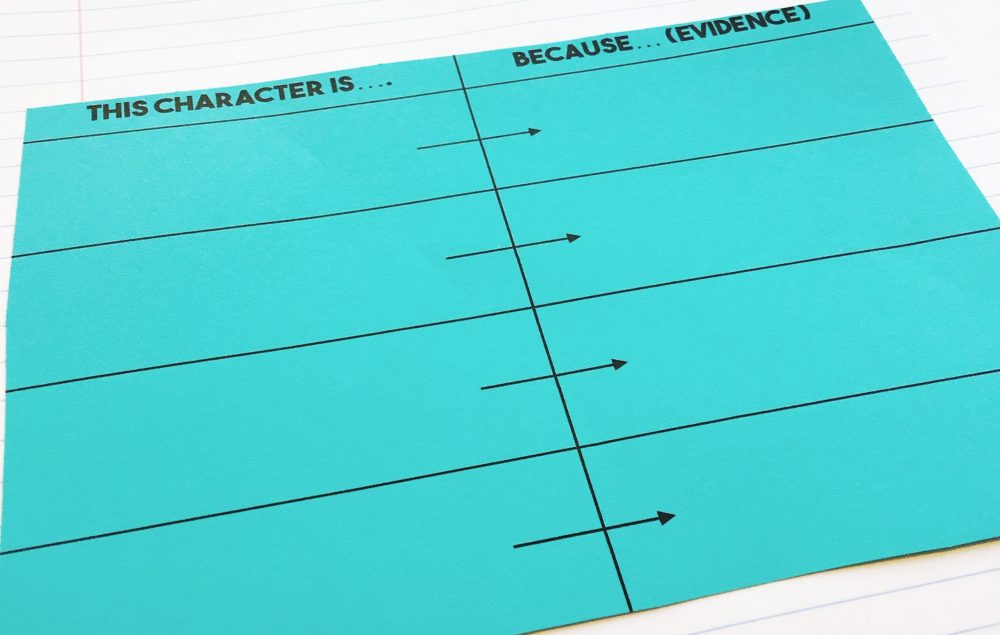
Learning how to apply reading comprehension strategies doesn’t have to feel like a chore – especially when you’re teaching them with fun super resources and activities! 🙂
It definitely takes time, but once your students have their confidence set in utilizing the strategies and making connections with the text, they’ll come to find reading is enjoyable and something that feels rewarding.
I hope you can use all of these Elementary Reading Comprehension Strategies bundles in your comprehension strategies unit and have fun with your students while developing a love for literature!

Make sure to sign up below to get a FREE reading comprehension digital mystery pixel sent right to your inbox!

Hey there, I’m Kelly! I I love helping teachers save time with technology and resources so they have more hours in the day to spend with family and friends. Take a look around to find new ideas that you can implement in your classroom today!